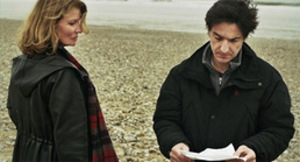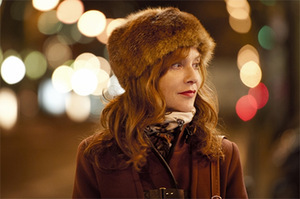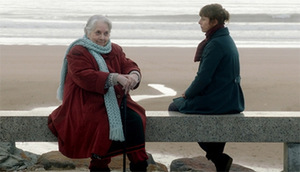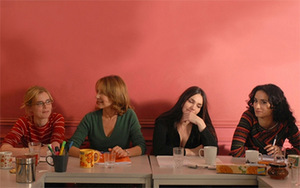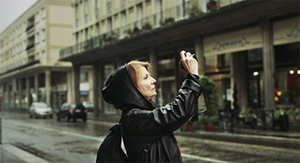Winter Screens. Film, not only for a policeman 3
In brief: L. Belvaux film "One Night" which was showed at the Winter Screens, and has also opened a Rotterdam International Film Festival, is a film that you can't get out of your head - on the contrary, after the ending titles you start to think about it more intensively. Film, which should be screened over, and over again, because it is so technically brilliant that does not leave anyone untouched.
L. Belvaux film's "One Night" fable is quite simple, but gripping from the first minutes: in the middle of the night, near an apartment building a young woman is killed and her body is later found in the stairwell. In the morning police interviews the residents of the building whether they had heard anything. It appears that no one heard anything - some slept with the ear plugs, others were on sleeping pills and the rest with windows and doors shut.
Near the stairwell dozens of candles are burning surrounded by flowers and among them - photographs of a young smiling girl. Some stop bye, relatives are sobbing, others walk faster. Some people, mostly residents of the same house, come to the place of murder only when there is no one around, others cannot even do that, they are watching everything through their windows. But don't they really dare? Maybe they are trying to get rid of the feeling of guilt, which is not letting them be at peace; maybe they are trying to kill their conscience which is driving them mad, silently and relentlessly, because apparently, one of those 38 witnesses has heard the crime.
One of those 38 witnesses goes to the police and admits that he did hear that uncanny, night cutting shriek. It was so strong that it was impossible to not hear it. And how about those 37 other witnesses who claimed they did not hear or see anything? Who is right - that one person eaten by guilt or the rest?
Here, guilt, not only of one person but all of ours (all society's) begins tearing the brain apart, because every person who watched the film had no other opportunity than to check their working (and if yes, than how much?) or non-working conscience; to visually, intellectually and metaphorically see and measure that black hole in the space of conscience. There was no judge (punisher), only you; you did not have to explain yourself loudly to someone, only to admit it to yourself.
Lights are turned on in the cinema after the movie and people, in a complete silence, start moving, like shadows, because each and every one of us are carrying this horrible guilt; the understanding of the illusion of safety and deconstructed metaphor (how many times per day, week, month or the whole life we "heard and saw nothing"). We are dragging ourselves - people on whom so much depends on - another person's life or death, the life or putridity of conscience. That loud shriek is a metaphor, because such screams for help echo every day, and not even behind the closed doors, but right here, so close.
By the way, funeral and mourning is depicted very visually: people dressed in t-shirts with an image of the smiling murdered girl, do not fit in the cathedral, where the mass is held in respect of a departed girl. People stuck to the TV screens follow the news on the crime, they demand it to be solved immediately. But isn't indifference the biggest crime? It overwhelms us when we take the first step beyond, a so called, our space (home, close environment) into the space of others. This creepy question comes up during the film. It is so uncanny, because you and I, to those 37 are also others. This means that in a world like that we only have an illusion of safety, and that means we have nothing.
